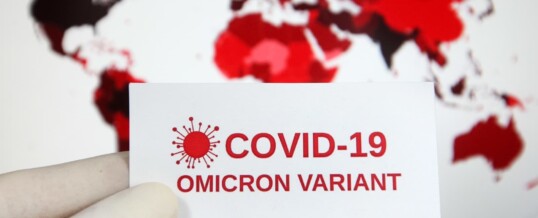
McLeod Group guest blog by Thando Malambo, December 16, 2021
Despite growing calls for the decolonization of global health and the international aid industry more broadly, colonialist patterns continue to shape the language and response to the COVID-19 pandemic, particularly in relation to African countries. Colonial prejudices and narratives of Africa as a site of disease and contagion remain dominant in global health discourse, most recently evidenced by the knee-jerk reactions to the detection of the Omicron variant.
When South African scientists announced that they had detected a new variant of concern on November 25, 2021, they noted that it had a worrying number of mutations. They alerted authorities and began investigating how widespread it was within South Africa. Their actions demonstrated a level of scientific expertise, vigilance and transparency that is to be applauded.
Yet the global response was swift, punishing and colonialist. Within hours, some Western countries banned travel from South Africa and neighbouring countries, including Botswana, Lesotho, Eswatini and Zimbabwe. When the World Health Organization pronounced Omicron a variant of concern, several more countries, including Canada, instituted bans on travel from Southern Africa, despite cautions from the WHO about their lack of effectiveness. Some news articles referred to the new “South African variant”, a stigmatizing and xenophobic label.
Worse yet, even though cases of Omicron in other countries came to light, many Western countries banned travel solely from African countries. Canada even required travellers from 10 Southern African countries to get PCR tests in a third country before returning to Canada, although this requirement has now been rescinded after intense public pressure. In short, the world defaulted to a prejudiced narrative portraying the Omicron variant as an African disease – a narrative that eerily reproduces colonial prejudices.
Colonial history describes Africa as the diseased continent, long associated with dreaded illnesses and death. This othering of Africa sadly endures, notably in contemporary media representations. Other regions in the Global South are also often portrayed this way, as was evident in the colonialist and racist responses to the apparent emergence of COVID-19 in China.
The narrative of Africa as a diseased continent is pervasive within global health discourse. It is echoed in descriptions of African women as licentious, promiscuous, ignorant, devoid of agency and victims in need of saving, as well as in representations of African cultures as negative influences on health or health-seeking behaviour. The history of global health is inextricably linked to colonial conquest. Contemporary development discourse reproduces colonial ideologies of modernity and progress, continually othering Africa in ways that justify Western intervention, even when that intervention is at odds with local priorities.
We also see colonialist ideology in the white male–dominated organizational cultures pervasive in global health work. Management positions are largely occupied by middle-aged white men, while local experts serve as administrators or logicians without the power and gravitas to determine priorities, make decisions and meaningfully lead action on the ground. It is also visible in the white gaze pervasive in representations of African people and cultures, and in the way global health perpetuates, knowingly or unknowingly, the colonial gaze in the spaces within which it acts. Because, in the absence of an othering narrative, the imperative to “civilize” the “other” or dictate the terms of development virtually disappears.
It should therefore come as no surprise that Western countries are yet again othering Africa and constructing it as a site of contagion and disease. Canada’s blanket travel bans from Southern African countries remain in place, even as Omicron spreads around the world. The fact that South African scientists were the first to sequence the Omicron variant highlights their state-of-the-art science and public health surveillance systems.
But the narrative focuses on South Africa as the site of contagion that must now be banned, isolated and stigmatized. It punishes South Africa for being good at what they do and sharing their science with the world. It can also discourage the next group of scientists who identify a variant from being as forthright.
Not all global health actors are inherently racist. But there are colonialist undertones within global health, especially in relation to Africa, that must be acknowledged, challenged and dismantled. Africa is not doom, gloom, disease and death. To adopt global health policies that continually reproduce and perpetuate colonial stereotypes is to fail the very people we claim to help.
Thando Malambo is a Ph.D. student in international development at the University of Ottawa. Image: STR | NurPhoto | Getty Images.
